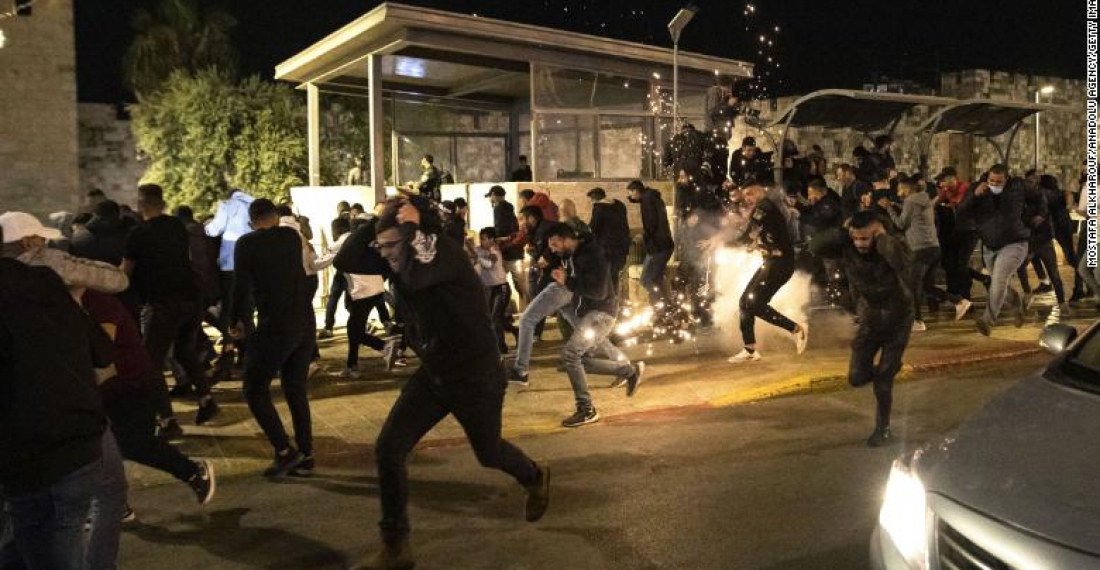The EU, the US and other countries have called for calm after incidents in East Jerusalem resulted in dozens of injuries and arrests.
According to the international broadcaster Al Jazeera, more than 100 Palestinians and 20 Israeli police have been wounded in violent clashes on Thursday night that ensued after far-right Israelis marched in the occupied East Jerusalem chanting “death to Arabs”.
The Palestinian Red Crescent said it had treated at least 105 people, with some 20 of them hospitalised. Israeli police said 20 officers were wounded, three of whom were taken to hospital.
The violence broke out outside one of the entrances to the walled Old City where far-right Israelis had completed a march, during which participants harassed Palestinians and chanted “death to Arabs” and waved banners reading: “Death to terrorists”.
As Palestinians heard reports of the Israeli march organised by a far-right group, Lehava, they gathered in thousands near the Damascus Gate with ambulances racing up and down the crowded backstreets with their sirens blaring.
Hundreds of Israeli police in riot gear sealed off the area to prevent the Israeli and Palestinian crowds from potentially meeting, creating a 50-metre (164 feet) no man’s land between themselves and the group of Palestinian youths.
Tensions have spiked in recent days in Jerusalem, which has long been a flashpoint in the Israeli-Palestinian conflict, and is home to holy sites sacred to Muslims, Christians and Jews.
The Palestinian president’s office condemned “the growing incitement by extremist far-right Israeli settler groups” and urged “the international community to protect the Palestinian people from the ongoing settler attacks”.
“East Jerusalem is the eternal capital of Palestine and is a red line,” the presidency said in a press statement on Thursday.
In Brussels, the spokesperson for the European Union said that the EU is deeply concerned by last night’s violent clashes in Jerusalem. These latest incidents follow several nights of tension and violence in Jerusalem, as well as in Jaffa earlier this week.
"The EU calls for calm and an immediate lowering of tensions and for restraint and responsibility to be shown by all, in particular by community leaders and officials, at this sensitive time. Incitement and violence have to be rejected by all", the statement said.
In a statement in English, Hebrew and Arabic, the US Embassy in Israel said it was “deeply concerned” about the violence. “We hope all responsible voices will promote an end to incitement, a return to calm, and respect for the safety and dignity of everyone in Jerusalem,” it said.






